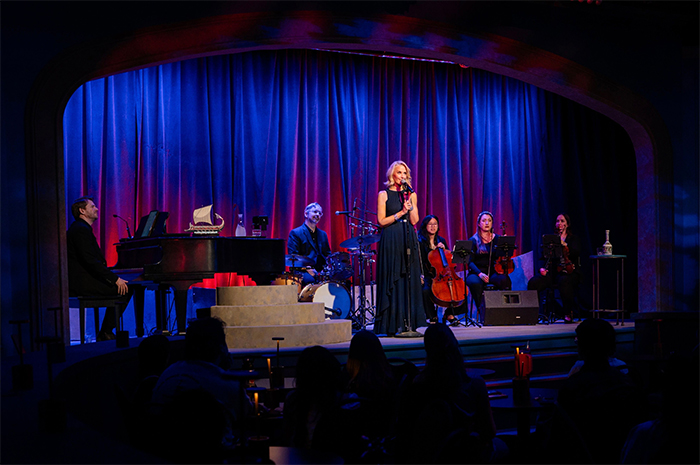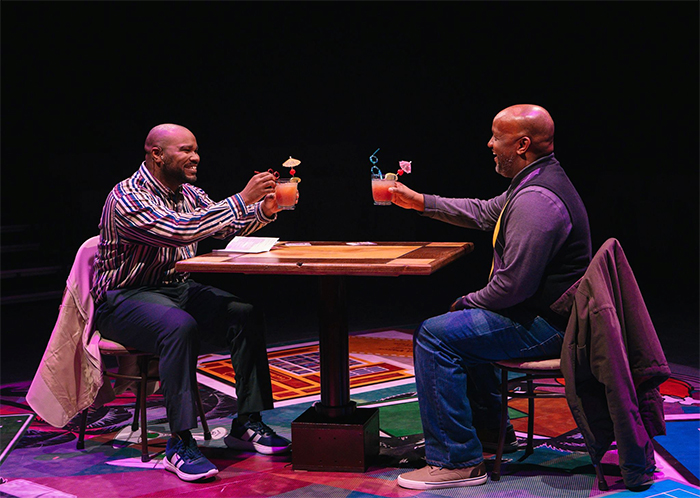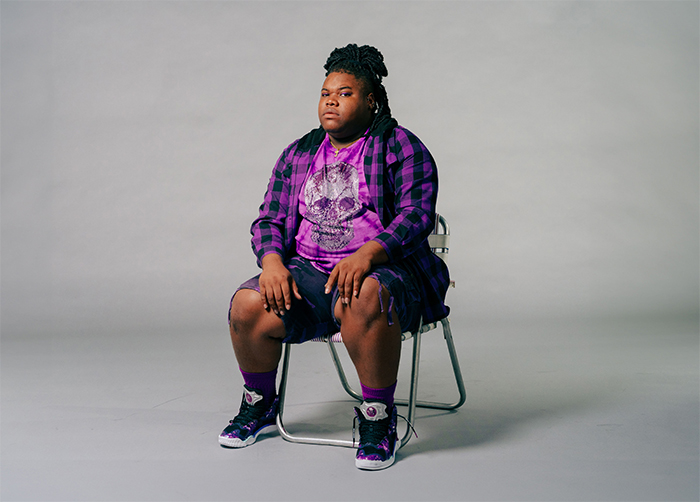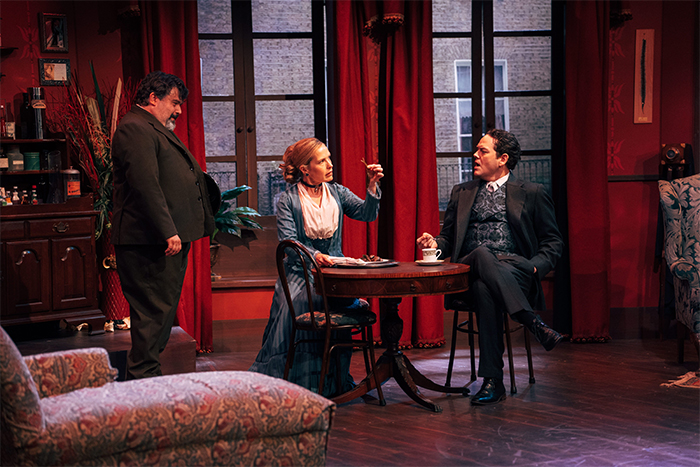Stage West’s 47th season is full of wild turns: ghost machines, war-time ceasefires, financial despair, and a cottage crawling with infidelity. The six-play season is stacked with regional premieres and collaborations, all with the through-line of empathy.
The season begins with Ride the Cyclone (Oct. 16-Nov. 2, 2025), a musical about six teenagers who die in a freak roller coaster accident and find themselves in spiritual limbo, where a mechanical fortune teller gives them one last shot at life through a bizarre talent show. The show has a devoted following, especially on TikTok, and Stage West’s version is capitalizing on that youthful appeal by being a co-production with Theatre TCU.
“It’s nice to reach out of our own little house and collaborate, to learn something new and share things that might benefit others,” Schultes says. “Plus, it’s just a fun time of year to tell a ghost story.”

1 ⁄4
Cara Statham Serber and the band, Cody Dry, Wes Griffin, Molly Wang, Catherine Beck, and Bethany Hardwick in the Stage West production of Penelope, music and lyrics by Alex Bechtel, book by Alex Bechtel, Grace McLean, and Eva Steinmetz, based on writings in The Odyssey by Homer. Photo by Evan Michael Woods.

2 ⁄4
Lee George and Jamal Sterling in the Stage West production of Eboni Booth’s Primary Trust. Photo by Evan Michael Woods.

3 ⁄4
Tyler Lewis in a promotional photo of the Stage West production of Fat Ham by James Ijames. Photo by Evan Michael Woods.

4 ⁄4
Brian Gonzales, Dana Schultes, John-Michael Marrs in the Stage West production of Sherlock Holmes and the Adventure of the Fallen Soufflé by David MacGregor. Photo by Evan Michael Woods.
Next comes All Is Calm: The Christmas Truce of 1914 (Dec. 3-21, 2025), an a cappella musical based on the real-life moment when Allied and German soldiers laid down their weapons on Christmas Eve and met in No Man’s Land. The show is built entirely from letters, songs, speeches, interviews, and journal entries from the period, arranged into a score for a 10-man vocal ensemble.
The first time Schultes encountered the piece, she was stunned. “I thought, ‘Could this have really happened?’ I was astonished at how humanity can come together and skirt the pressure put upon us by governments to fight each other. It’s such an apt title for this moment in time.’”
She also points out that there’s no conductor for the singers to rely on. “Many moments, the men have to start on the same note and the same tempo—with no help. We really have to have an ensemble that is of one voice, in sync down to their heartbeats, to tell this story together.”
She describes it as “a marrying of Our Town meets Shirley Jackson’s The Lottery. The audience votes on how it ends, similar to how our votes determine how the stories in our community are told.” Although it’s a solo performance, the show is immersive. “But don’t worry,” Schultes says quickly, “the audience doesn’t actually get onstage or say any lines.”
On March 12-29, 2026, A Case for the Existence of God arrives. The play from Samuel D. Hunter, who also wrote The Whale, is a two-hander that takes place in a small-town loan office where two single fathers find connection amid financial and emotional struggles.
“It doesn’t seem like much when you describe it,” Storms admits. “Two men, one office. But it absolutely guts you.”
Schultes says she’s been following Hunter’s work for years. “His writing is so emotionally precise,” she says. “It sneaks up on you. This play has almost no stage directions, no big events. But somehow it cracks your heart wide open.”
“We just couldn’t resist finishing the story,” Schultes says. “These plays are clever, fast, and full of theatrical spectacle. They’re so much fun to stage.”
The season closes August 12-30, 2026, with The Cottage, a high-speed sex farce by Sandy Rustin about extramarital affairs, accidental revelations, and chaotic consequences. Set in 1920s England, the play opens with a woman exposing her affair through a barrage of scandalous telegrams, and the fallout is fast and ridiculous.
Schultes says part of the company’s mission is ending seasons on a high note, not just for the audience, but for the artists. “It’s been a heavy few years,” she says. “I can’t think of a better way to end this season than with laughter.”
— LINDSEY WILSON





